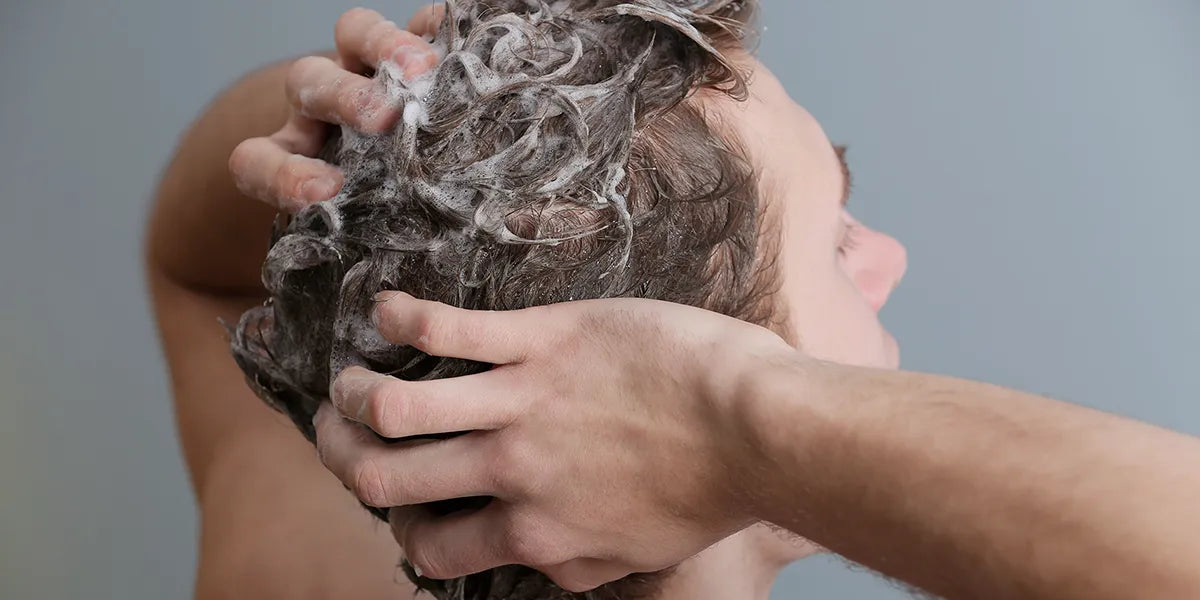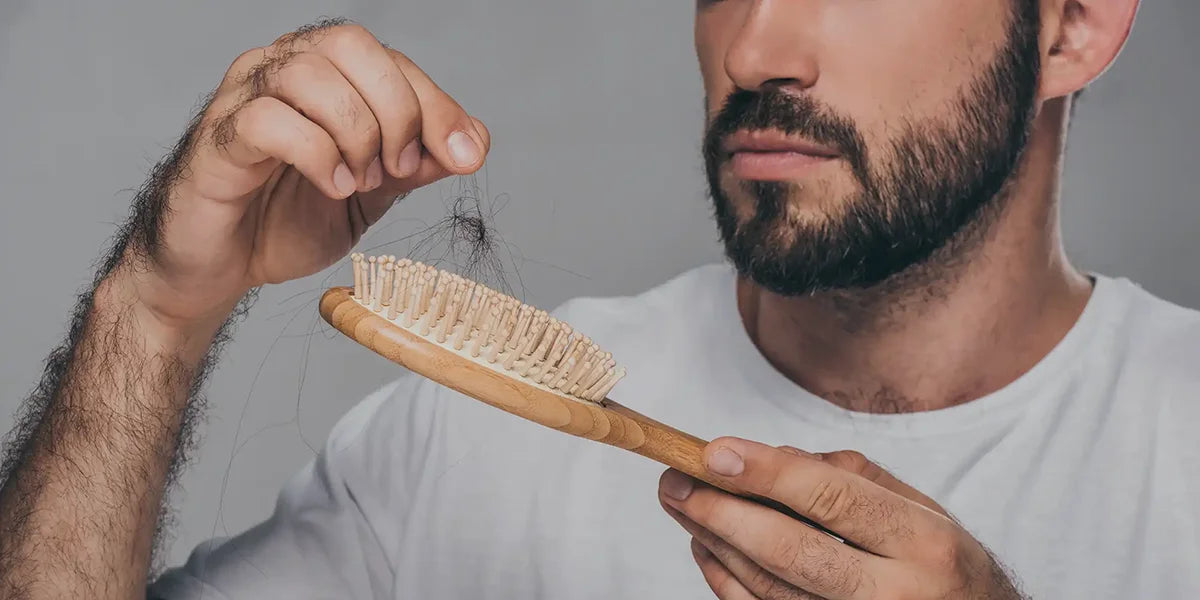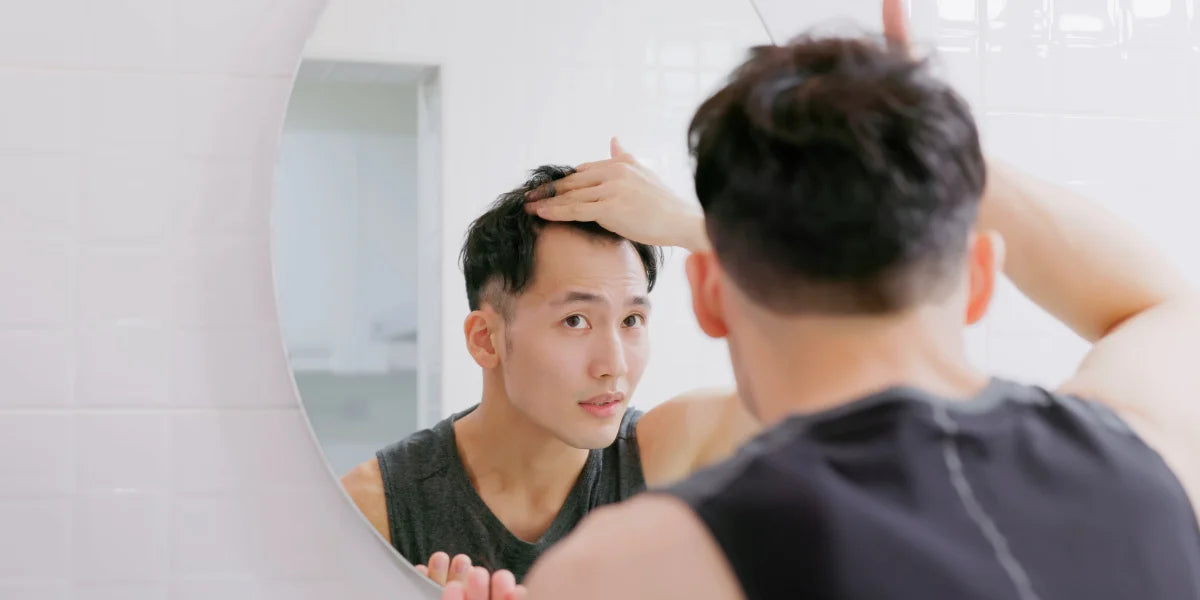The scalp is more than just a layer of skin on your head. It’s the foundation of great hair. In this article, we cover how to recognize a healthy scalp, why it’s important to take care of scalp skin and provide practical tips that you can implement today to start building great habits.
What is the scalp?
The scalp consists of five layers of specialized tissues that protect the skull and brain from pathogens and physical trauma. From the outside in, these layers are the skin, connective tissue, aponeurosis (tissue connecting muscle to bone), loose areolar tissue (nutrient exchange and cushioning) and periosteum (the layer that directly covers bone). Compared to skin elsewhere on the body, the scalp contains a high number of terminal (mature) hairs and oil-producing glands (Trüeb et al., 2018).
Hair follicles located throughout the scalp give rise to hairs that insulate the head, protect it from the elements and play an important role in sexual signaling and appearance (Tajran & Gosman, 2021).
What does a healthy scalp look like?
Experts agree that a healthy scalp is free from redness or excessive flakiness that could indicate infection or inflammation. It should also look hydrated, but not overly oily.
If you do notice redness, unusual bumps or lesions, flakiness or irritation, we recommend that you consult with a doctor to identify the cause of your symptoms. Dandruff, seborrheic dermatitis (a more severe form of dandruff) and psoriasis (scaly, red patches) are among some of the most common scalp problems. Fortunately, these are manageable with treatment.
Why is scalp health important?
There is a close relationship between scalp health and hair loss. Research has shown that growing hairs are impacted by the health of the scalp even before they emerge from the skin. In the early stages of development, hairs are especially sensitive to something called oxidative stress (Trüeb, 2015).
Oxidative stress results from the build-up of molecules called free radicals. They are natural by-products of metabolism, but are also created when microorganisms (e.g. bacteria and/or fungi) and certain autoimmune or skin conditions trigger an inflammatory response. Excessive sun exposure, pollution and smoking can also increase free radical levels in the skin.
Free radicals are extremely reactive and easily interact with biological building blocks, such as fats and proteins. These building blocks are critical to the normal development of hair and damage to these components can lead to suboptimal hair growth and quality. Additionally, the tissues that anchor hairs in place within the scalp may also be weakened. As a result, hair can feel coarser, be more prone to breakage and lose its sheen.
How to improve scalp health: 5 easy steps
Here are 5 basic principles of scalp care that you can integrate into your daily routine:
1) Keep it clean
To reduce the risk of infection or inflammation and eliminate excess oiliness that may support the growth of microorganisms, it is important to wash your hair regularly. If your scalp is oily, daily washing may be necessary. However, if your scalp is not overly oily, washing every other day is often adequate and minimizes the risk of over-drying the scalp. Regular washing can also help eliminate environmental pollutants that can contribute to oxidative stress.
Brushing your hair is also a good idea. It serves several purposes including removing buildup from hair styling products, removing excess skin and facilitating the shedding stage of the hair growth cycle. But be aware that you can over-brush your hair, which increases the risk of breakage and hair loss. It’s sufficient to brush once or twice a day, at the same time you regularly style your hair.
Additionally, treating any underlying medical conditions of the scalp is key to establishing a good foundation for optimal hair growth. Common issues such as dandruff may require specific shampoos to address the itching, flaking and overgrowth of yeasts and other microorganisms that can worsen scalp inflammation.
2) Keep it hydrated
You’ll also want to pay attention to what you use to clean your scalp. Not all shampoos and conditioners are created equal. Ideally, you should choose products that lather effectively without leaving skin feeling overly tight and/or dry.
Moisture is key because a dry scalp can create more problems. The outermost layer of the scalp is called the stratum corneum and it consists of alternating layers of flattened skin cells. This layer is critical to maintaining hydration levels and creating an effective seal against the environment.
When choosing a shampoo, you can try looking for products formulated with laureth sulfates, which are a gentler type of detergent. One example is XYON's DHT-Blocking Shampoo. Alternatively, you may want to check that the ingredients list includes things like proteins, glycerin and silicones, which are designed to aid with moisture retention and combat the potential drying effects of cleansers (D’Souza & Rathi, 2015).
3) Keep it protected
UV Radiation: Studies have shown that prolonged sun exposure and ultraviolet radiation can cause and intensify oxidative stress at the scalp. Ultraviolet radiation accelerates aging, may leave skin more susceptible to irregular pigmentation and increase the risk of certain skin cancers.
If you plan to be in the sun, protect your scalp by wearing a hat to physically block harmful UVA and UVB radiation from the sun. For those with a more exposed scalp due to hair loss, applying a broad-spectrum sunscreen to the area may be an option. A SPF rating of 30 or higher is often recommended by dermatologists.
Smoking: Cigarette smoke contains chemicals that encourage free radical production and accelerate the breakdown of collagen in the skin. Smoking also causes blood vessels to narrow, decreasing oxygen levels at the scalp and negatively impacting the health of skin and hair.
Chemicals and fragrances: You may also consider avoiding or decreasing the frequency of chemical treatments like hair dyes. Paraphenylenediamine (PPD), a common ingredient in commercial hair dyes, has been linked to allergic and irritant reactions in susceptible individuals. These can negatively impact scalp health due to the inflammatory response they can elicit. In severe cases, they may require medical treatment. Additionally, chemicals found in hair dyes can make the hair shaft more brittle, increasing the likelihood of hair breakage.
Heavily perfumed hair products may also cause allergic or irritant reactions. Therefore, those with sensitive skin may want to avoid applying products to the scalp that contain perfumes or fragrance mixes.
4) Keep it nourished
Inflammation can also be minimized through diet and exercise. Maintaining a healthy body weight lowers body-wide levels of inflammatory markers that are released by excess fat cells. Additionally, consuming a diet high in fibre and healthy polyunsaturated fatty acids (e.g. omega 3s and 6s) has been shown to provide anti-inflammatory, antioxidant and androgen-modulating benefits– all of which appear to benefit hair thickness and growth (Le Floc’h et al., 2015).
You could also consider taking a multivitamin or supplement to ensure that you are getting adequate amounts of micronutrients such as Vitamin D and iron. These specific examples have been identified as key players in supporting healthy hair growth.
5) Keep your cool
Stress management could also have important implications for scalp health and hair growth. During periods of high stress, cortisol levels increase. Cortisol is a hormone that can interfere with the hair growth cycle, decrease production and accelerate the breakdown of skin components like collagen and hyaluronic acid. This can result in dry, irritated skin that may be more prone to inflammation.
Scalp health: Takeaway
Research has shown that the growth potential of hair is influenced by the health and biochemical environment of the scalp. By keeping the scalp clean, hydrated and protected from environmental and chemical triggers and being mindful of nutrition and stress levels, you’re taking the right steps to ensure that your hair looks its absolute best.




